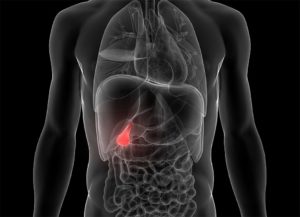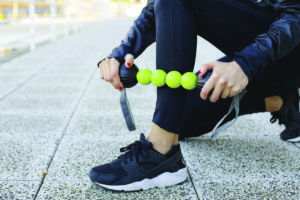Anatomy/Kinesiology
Longing for Lung Facts
We do this every moment of the day; it can help us relax, and it speeds up when we exert ourselves—all without so much as a thought. Inhale. Exhale. Breathe! This important gas exchange, which keeps us alive, can only happen thanks to the miraculous work of the lungs.
Pilates Helps Adolescents
6-week Pilates program improved core muscle endurance and hamstring flexibility among adolescents between 9 and 19 years with a history of back pain. Research findings from a preliminary study published in Complementary Therapies in Clinical Practice (2019; doi:10.1016/j.ctcp.2019.01.006) showed that a 6-week Pilates mat exercise program with two 55-minute sessions per week can improve conditioning in both young males and young females.
Bigger Belly, Smaller Brain?
Excess body fat stored primarily in the abdominal area has been linked with lower gray-matter brain volume, according to a report in Neurology (2019; doi:10.1212/WNL.0000000000006879).
Fewer Carbs May Increase Your Metabolic Rate
Anyone who’s achieved a weight loss goal, then watched his or her waistline expand over the following months, can attest to the incredible frustration of seeing hard-earned results fade away. The reasons for weight regain are many, but a big contributing factor is how the body tends to recognize missing pounds as a need to slow metabolism and burn fewer calories, making it harder for people to maintain weight loss.
Gut Hormone Ghrelin May Derail Healthy Eating
It happens to the best of us: You walk into the supermarket intent on filling your cart with nothing but healthy foods, only to be blindsided by the oh-so-enticing smell wafting from the bakery aisle. It turns out you can blame your hormones for why you’re standing with muffins at the checkout line, according to re?¡search in Cell Reports.
Variable Deadlifts & Deadshifts
We define what variable deadlifts are and address the need for variable lifting, as well as the deadlift’s forgotten cousin, the deadshift.
How Resistance Training Affects Metabolism
Resistance training does much more than build strong muscles. Research has confirmed that resistance training affects metabolism, too.
Hyped on the Hypothalamus
The hypothalamus occupies little real estate in the brain, but it houses nuclei critical to many of the body’s regulatory functions. Situated just beneath the thalamus, it keeps the body in homeostasis by controlling the sleep-wake cycle, body temperature, hunger and thirst, sex drive, fluid balance, emotions, blood pressure, and heart rate (Johnson 2018).
Sleep Deprivation: You Are How You Sleep
Spending a third of our lives horizontal, hallucinating and paralyzed may sound like something from a scary sci-fi movie—but, in reality, these are good things. It’s all about sleep, and getting enough of it is essential.
Women and Weight Training
Every day, more women are moving from the cardio room to the weight room. It’s a welcome transition; getting stronger can transform their self-esteem, confidence and self-efficacy.
Get to Know the Gallbladder
When you think of the gallbladder, two things likely come to mind: It’s located in the right abdomen, and it’s associated with painful gallstones. But, typically, little attention goes to this small organ working quietly behind the scenes during digestion.
Self-Care Massage Tools for Recovery
As a fit pro, it’s helpful to use self-care massage tools for exercise recovery to prevent or treat pain or imbalances in the body.
Helping Clients Enjoy the Taste and Culture of Food
It’s time for Americans to shift their focus from calories, macronutrients and micronutrients to taste, culture and mindfulness. After all, our preoccupation with dieting and health fads has us restricting foods, chasing unsustainable weight loss goals and feeling bad about our nutrition choices—but all we have to show for it is rising rates of overweight, obesity, diabetes and heart disease.
Neuromuscular Power Training for Athlete Clients
To help clients with power training, you need to understand the fundamentals of neuromuscular power development.
Why Hydration Should Be on Your Mind
People who like to work up a sweat should definitely have proper hydration practices on their mind. A review in Medicine & Science in Sports & Exercise found strong evidence that athletes who lose more than 2% of their body weight in fluids—all too common in prolonged bouts of sweaty exercise—suffer noticeable declines in mental performance. The review (a meta-analysis of previously published research) noted declines in attention, motor coordination, and the executive functioning your brain needs to focus, organize and remember details.
Diet Can Fight The Effect Of Fat Genes
Over the past few decades, researchers have shown that an individual’s
genetic makeup can play a big role in his or her propensity to gain weight and keep it on. For instance, one person may have a gene that makes him more efficient at converting food calories into body fat, while someone lacking this gene can apparently eat as much as she wants without packing on a single pound. Maddening for some, to be sure. But now it seems that dietary choices may have the power to override certain genes associated with body weight.
Go Fish To Nourish A Baby Bump
Moms-to-be should visit the fishmonger more often. In a study published in the journal Pediatric Research, scientists in Finland collected nutrition information from 56 pregnant women using food diaries; the scientists then measured blood levels of long-chain polyunsaturated fatty acids (aka omega-3 fats) in both mothers and babies when the newborns were 1 month old.
Can’t Resist the Cookie Jar? Blame the Makeup of Your Brain
It appears that the way our brains are hardwired can play a big role in eating habits and long-term weight loss success, according to research published in the October 2018 issue of Cell Metabolism. In the study, Canadian researchers ran MRI brain scans on 24 people while showing them images of different foods. Participants then began a 1,200-calorie-a-day diet in a weight loss clinic.
Sleep Deprivation & Diabetes Risk
Did you know that losing a single night’s sleep may affect the liver’s ability to produce glucose and process insulin, increasing the risk of metabolic diseases such as hepatic steatosis (fatty liver) and type 2 diabetes?
Blood Facts: Circulating Information
In literature, it has been known to curdle, boil and run cold. Yes, we’re talking about blood. A closer look at its function and composition reveals an interesting story about the human body. Blood travels through the circulatory system to deliver vital nutrients, oxygen and hormones to the body’s tissues, and it’s made up of four components: red blood cells, white blood cells, platelets and plasma (MSKCC 2017).



















